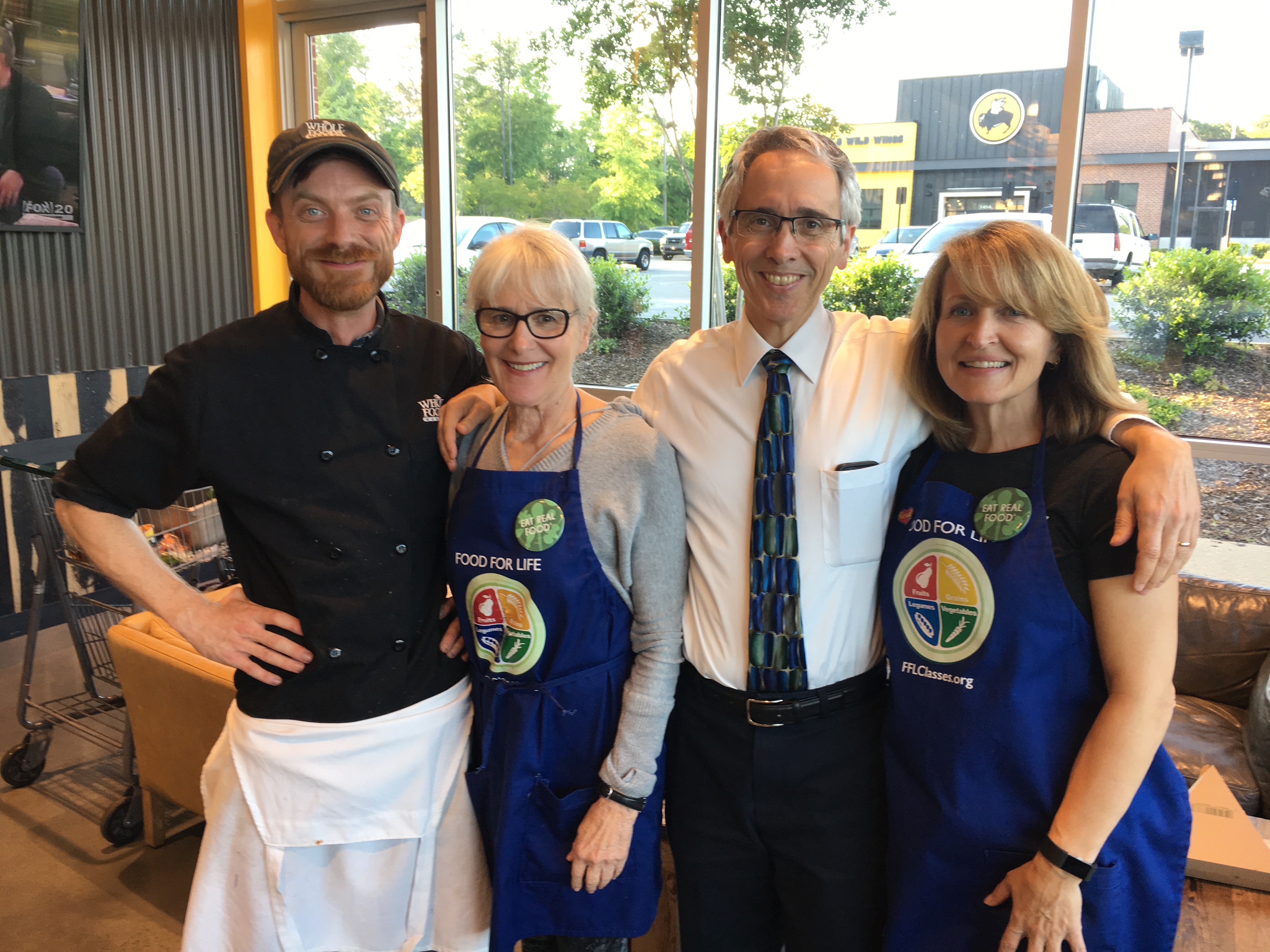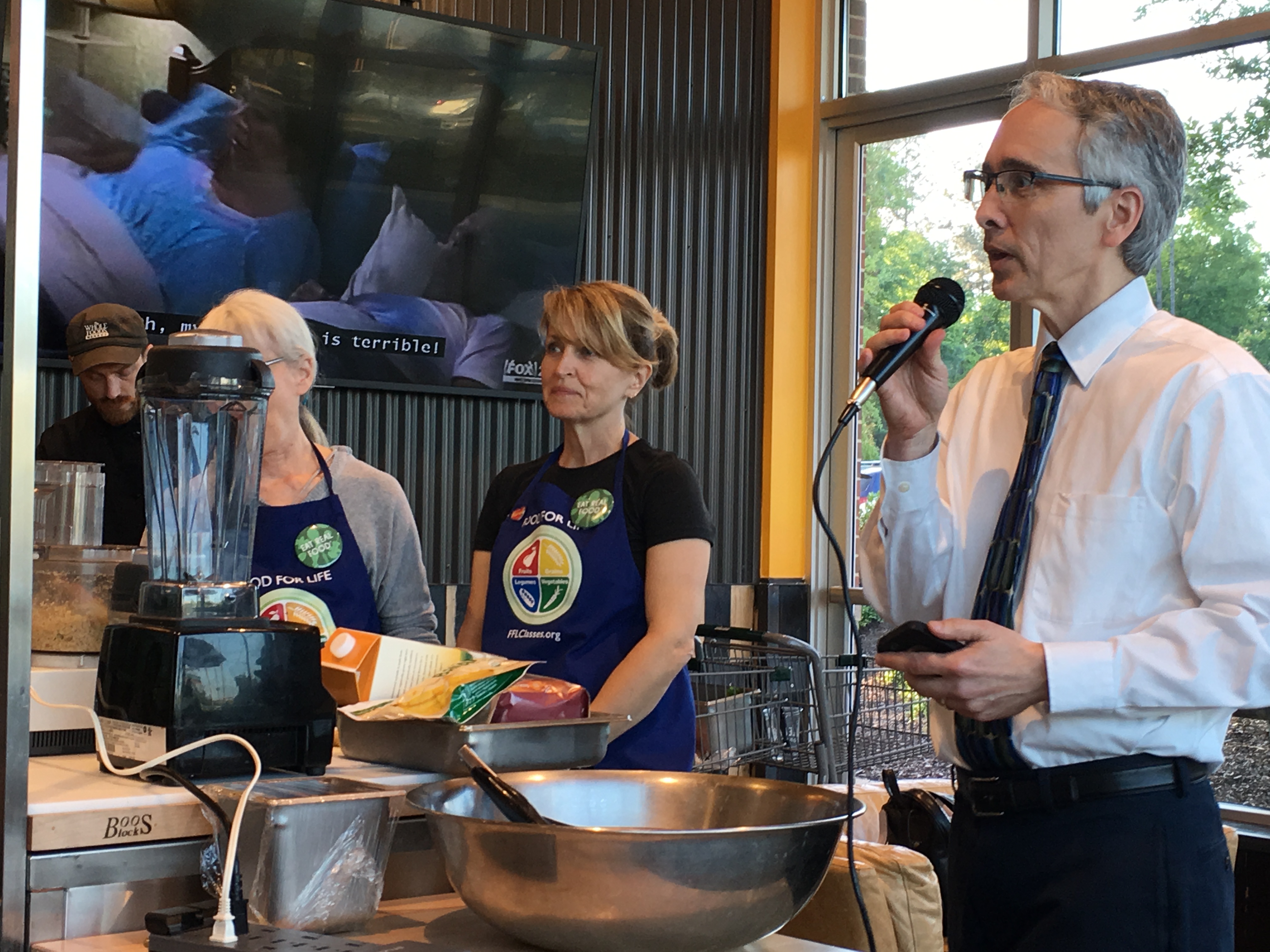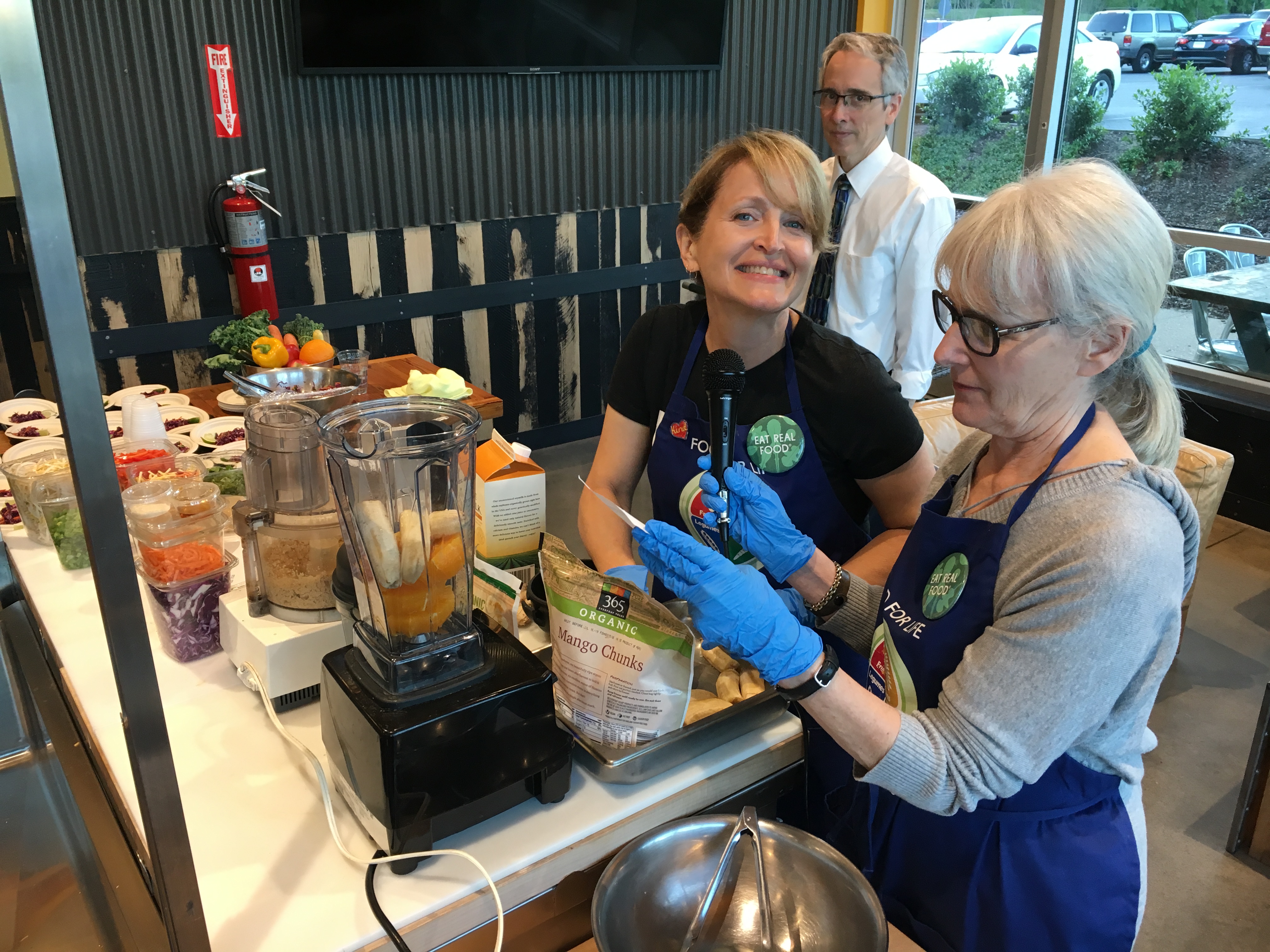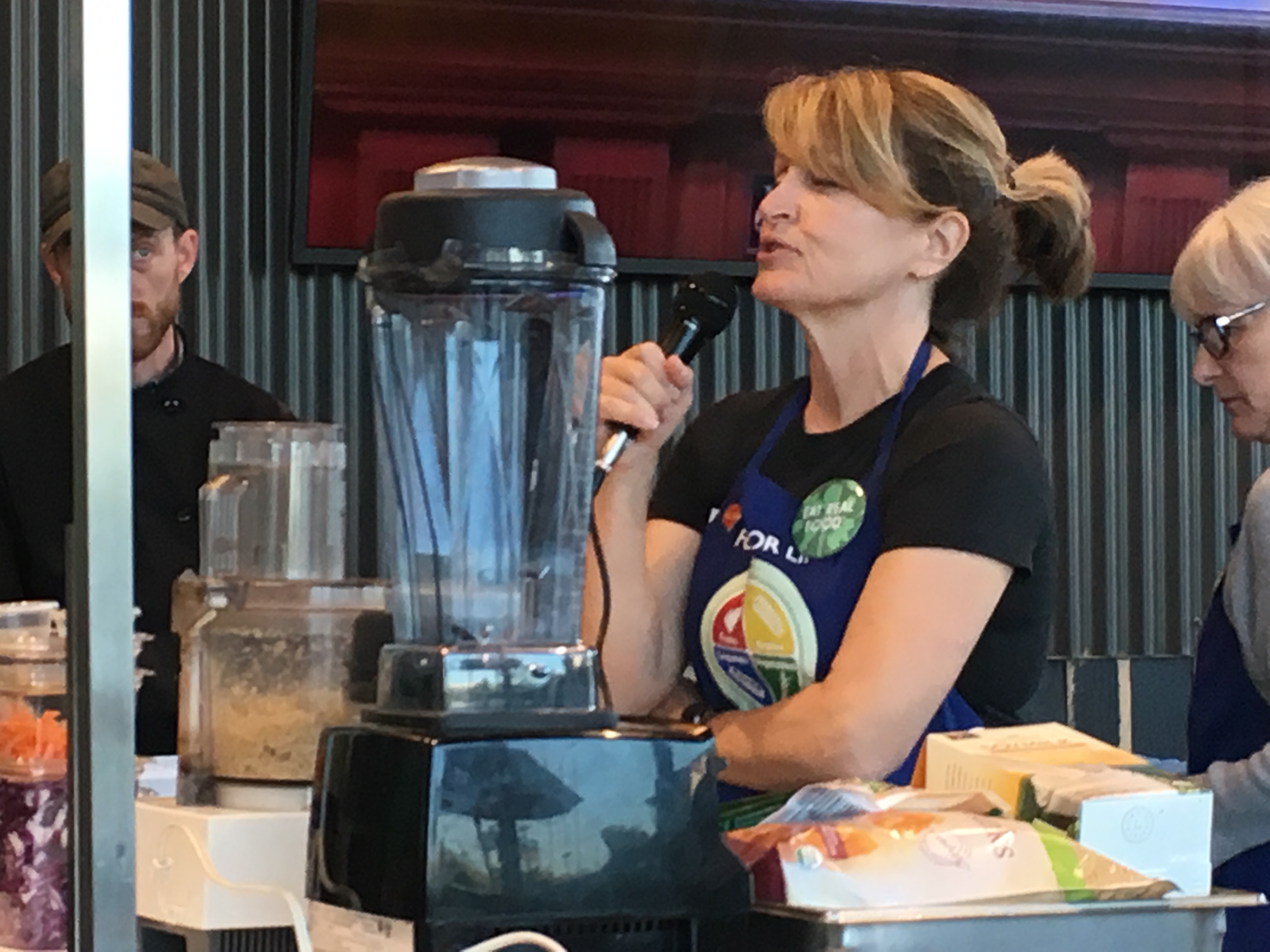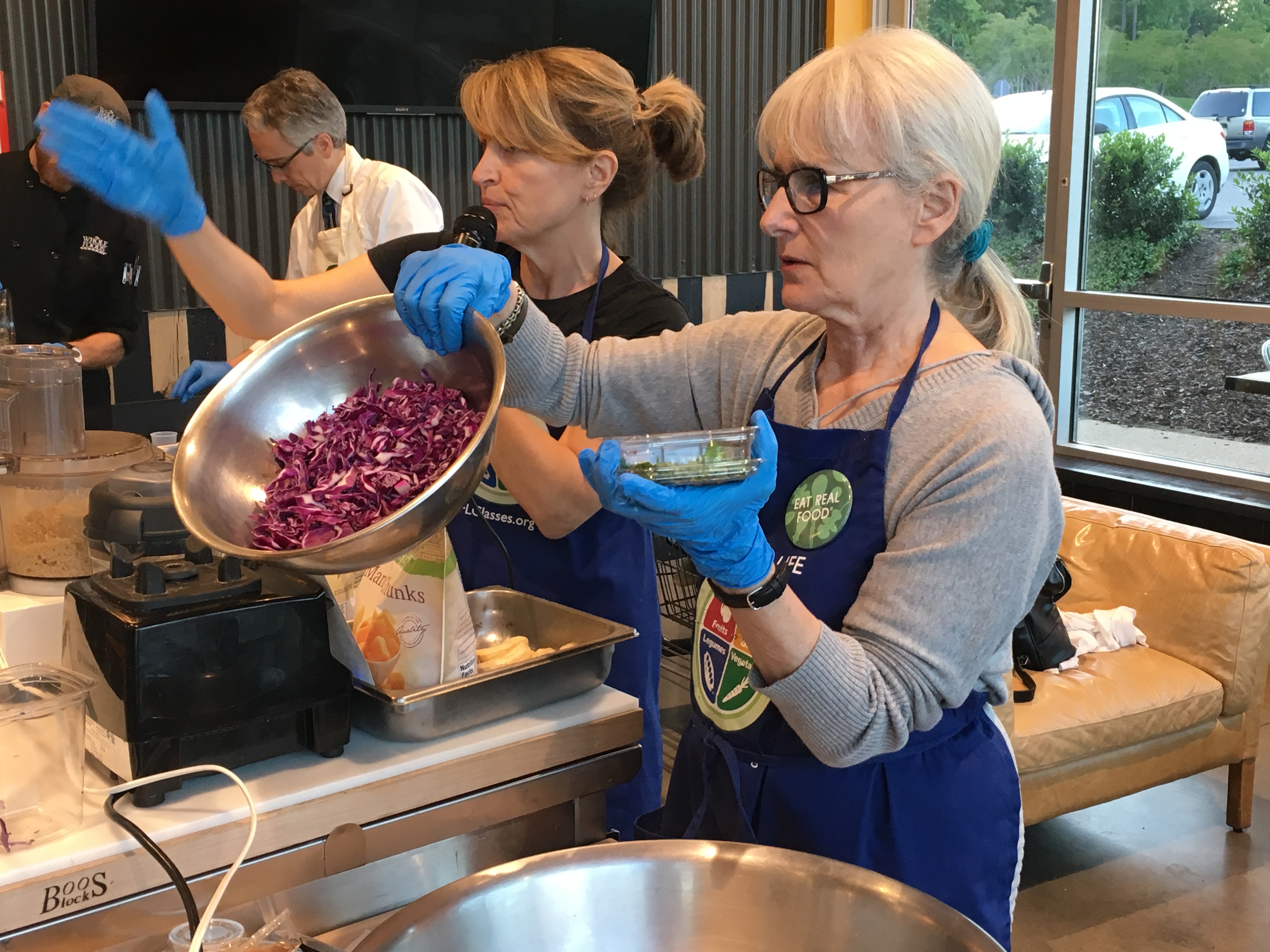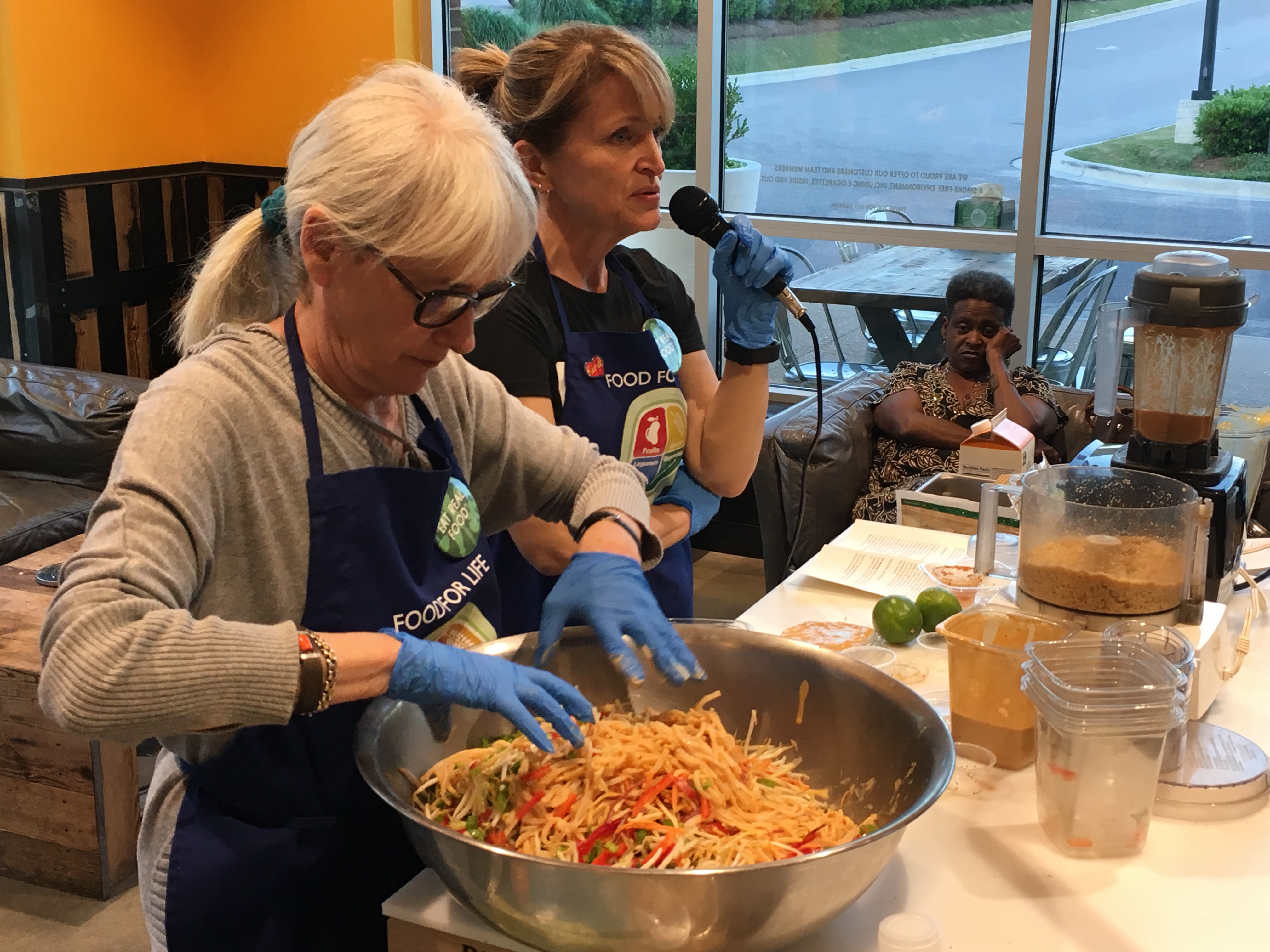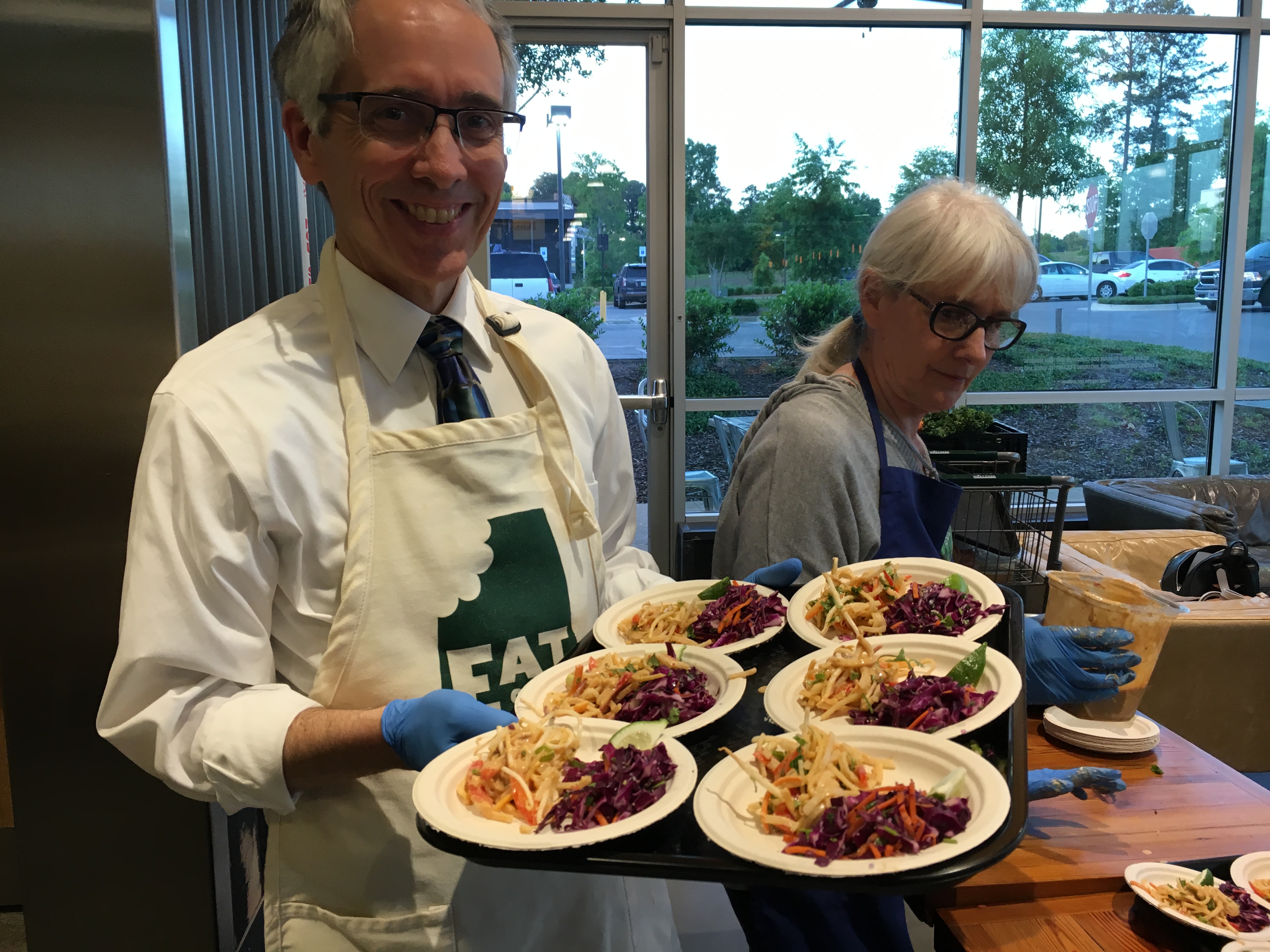MONTGOMERY – We’ve all heard the saying, “Eat your veggies,” but have you ever stopped to think exactly why we say it? It’s not just because our parents told us to. There’s scientific fact behind the benefits of loading up on those garden goodies. Montgomery physician Bryan Strickland and his wife, Carolyn, were not only impressed by the results of switching to a plant-forward lifestyle – they are passing their knowledge along to others hoping to reap the benefits of plant power.
For the Stricklands, it all began with The China Study, a study which examines the relationship between the consumption of animal products, including dairy, and chronic illnesses such as coronary heart disease, diabetes, breast cancer, prostate cancer and bowel cancer. The authors of the study concluded that people who eat a predominantly whole-food, plant-based diet, avoiding animal products as a main source of nutrition, including beef, pork, poultry, fish, eggs, cheese and milk, and reducing their intake of processed foods and refined carbohydrates, will escape, reduce or reverse the development of numerous diseases.
“About 10 years ago I read The China Study, which is the largest study on nutrition and health. It was an amazingly well-done study that looked at how nutrition impacted human health and health problems, most specifically cancer, over a 27-year period. When I read the study I was fascinated by it so I told my husband about it. Then we watched the movie Forks over Knives, which also looked at the impact of food on our health. That’s when Bryan and I really decided we needed to change our eating habits,” Carolyn said.
For Dr. Strickland, he felt this was a case of “physician health thyself.” The time had come for him to take the advice he was offering to his patients and put it into practice for himself.
“For me, it tipped the balance in that this was scientifically solid enough that we should act on what we saw and make changes in our lives first. There was enough evidence in this one study to prove to me that I didn’t need to look for nutritional supplements to keep me healthy. I could stop damaging my health by changing what I was eating and drinking every day,” Dr. Strickland said. “It was just that simple.”
Carolyn, who is also president of the River Region Medical Alliance, wanted to get more involved, so she became a certified Food for Life Instructor through the Physicians Committee for Responsible Medicine. The Physicians Committee for Responsible Medicine is a nonprofit organization steered by medical professionals advocating education and research in an effort to change the way chronic diseases such as diabetes, heart disease, obesity and cancer are treated with a focus on plant-forward nutrition.
With Dr. Strickland’s already busy office filled with patients who could use what he and his wife were learning about a plant-forward diet, the next logical step was to find a partner willing to host cooking demonstrations. So, Carolyn contacted Jason Autry, Mission & Purpose Field Specialist with Whole Foods, and the Meatless Monday Supper Club was born.
“If a physician tries to go out into the community alone to do something, you don’t accomplish as much as you can if you enable a team who can work together,” Dr. Strickland said. “The key to getting the word out about Food for Life is definitely with teamwork.
The Stricklands work with Jason and Bari Levin, who is also a Food for Life instructor, to prepare plant-based meals with a purpose for each Meatless Monday dinner event. Most events have an educational theme, such as diabetes, in which Dr. Strickland offers a bit of medical advice and how the benefits of changing a person’s eating habits can bring positive health changes as well.
“The China Study really illustrated a whole food, plant-based diet can tip the odds back into a patient’s favor if that patient is pre-diabetic or has high cholesterol or other chronic health issues. But you can’t ever make promises about what a diet is going to do for any specific person. I have examples of cases where people have lost between 40 and 70 lbs. and got totally off their diabetes medication, but still, those are isolated cases. If you go all the way to a plant-based diet, you’ll earn a couple of milestones in your life. What’s happening is you’re breaking an addiction to fat, salt and meat that all work on those pleasure centers in the brain. What they all have in common is that if you stop what you’re addicted to, you’ll feel bad for a couple of weeks, but that goes away. After a couple of months, the cravings go away. But it’s what you’re giving yourself in the long run that’s so good. It’s those medical milestones that you’re looking for.”
For Carolyn, Jason and Bari, their mission is not only awareness of the health benefits of eating your veggies, but also to break down the misconceptions that eating a plant-based diet can’t be fulfilling or even tasty.
“The change is so much more than weight and what we look like on the outside. Internally, our health is a lot better, and we both have so much more energy,” Carolyn said. “Of course people are skeptical at first when I tell them about how we eat plant-based and never get tired of it, but that’s until they try it. And, that’s why we wanted to team up with Whole Foods. The cooking demonstrations show just how tasty vegetables truly are…and they are never boring!”
The Meatless Monday Supper Club at Whole Foods in Montgomery meets on the last Monday of each month at 6 p.m. and it’s free. Visit Whole Foods for details.
*Before beginning any new diet or exercise regime, please consult your physician.
Still not convinced? Here’s a recipe compliments of the Meatless Monday Supper Club you might want to try:
Rad Thai
Yield: 4 Servings
This dish has all the flavor of traditional Pad Thai and is low in fat.
Ingredients
- 1/3 cup water
- 1 tablespoon almond or peanut butter
- 1/4 cup lime juice
- 3 tablespoons tamari (or low sodium soy sauce)
- 3 tablespoons ketchup
- 3 tablespoons coconut nectar or pure maple syrup
- 1 tablespoons peeled, roughly chopped ginger
- 2 cloves garlic, sliced or chopped
- 1/4 teaspoon sea salt
- 1/4 teaspoon red pepper flakes
- 8 ounces dry rice noodles, such as stick or vermicelli noodles
- 1 cup thinly sliced red pepper
- 1 cup matchstick-cut carrots
- 1/2 cup sliced green onion
- 1 cup mung bean sprouts
- 1/4 cup chopped cilantro
- 1 tablespoon chopped peanuts (optional)
- 4 lime wedges
- Baked tofu (optional)
Instructions
In a blender, combine water, nut butter, lime juice tamari (or soy sauce), ketchup, coconut nectar or maple syrup, ginger, garlic, salt and red pepper flakes. Puree until smooth. Set aside.
Cook the noodles according to package directions. Once just tender (do not overcook or they will become mushy), drain. Add sauce to the cooking pot and place over low heat. Add the cooked noodles, red pepper, carrots and green onion. Mix until noodles are coated evenly. Once warmed through, add sprouts and cilantro. Top with peanuts (optional) and serve immediately with lime wedges. Add baked tofu if desired.
Nutritional Information
Per serving: Calories: 324; Protein: 7 g; Carbohydrates: 69 g; Sugar: 15 g; Total fat: 3 g; Calories from fat: 7%; Fiber: 4 g; Sodium; 1,059 mg
Source: Dr. Neal Barnard’s Cookbook for Reversing Diabetes by Neal D. Barnard, M.D.; recipes by Dreena Burton

